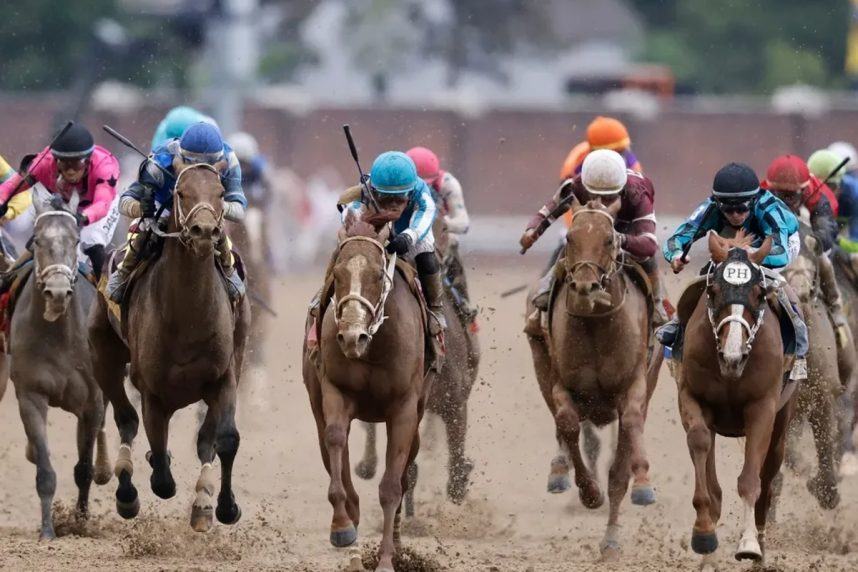Published on: January 5, 2025, 09:24h.
Last updated on: January 5, 2025, 09:24h.
The horse racing industry is looking for a comeback after a disappointing year in 2024.

Wagering on Thoroughbred horse races in the United States declined in 2024 for a third consecutive year. Thoroughbred racing is the most popular form of the sport stateside, with the Triple Crown consisting of the Kentucky Derby, Preakness Stakes, and Belmont Stakes. Along with the three marquee races, the Grand Slam of Thoroughbred racing additionally includes the Travers Stakes and Breeders’ Cup Classic.
According to Ray Paulick of the Paulick Report and Equibase, the industry’s official database, wagering on Thoroughbred races in the U.S. last year totaled approximately $11.26 billion. That represented a 3.35% decline from 2023 when betting exceeded $11.65 billion.
A dismal December for U.S. wagering on Thoroughbred horse racing put an exclamation point to the worst year for the industry since 2020, when businesses throughout the country were affected by the COVID-19 pandemic,” Paulick wrote.
There were 2.4% fewer race days across the nation at 3,787 and the total number of races declined 2.8% to 30,852. Parimutuel wagering hit a record high in 2003 when bets totaled over $15.1 billion, or an inflation-adjusted $25.7 billion.
Gaming Trying to Save Industry
Several states, including Massachusetts, New York, and Pennsylvania, direct substantial tax revenue generated by their commercial casinos to their horse racing industries.
In Pennsylvania, casinos have subsidized horsemen to the tune of more than $4 billion since the first slot machines were turned on in the commonwealth in 2004. Nebraska is taking a page out of Pennsylvania’s playbook in hopes of saving its own horse racing market. In 2020, Nebraskans approved a statewide ballot referendum authorizing racetrack casinos with slot machines, table games, and sports betting.
While most of the state tax benefit will be used for property tax relief, the thinking is that casinos will bring back patrons to Nebraska racetracks. Several of the casinos are building new racecourses and grandstands in part of their resort destinations.
In Virginia, lawmakers in 2018 legalized historical horse racing (HHR) machines, slot-like terminals that are actually parimutuel wagering devices. The gaming expansion saved the Colonial Downs Racetrack, with players wagering more than $4 billion annually on the machines.
HHR has found favor in recent years in other states that have parimutuel betting but not commercial casinos, including Kentucky and Alabama. But while the gaming benefit allowed horse racing purses nationwide to tick upwards in 2024 to over $1.3 billion, an increase of about a half-percent, the Equibase data shows that casino gamblers aren’t being converted to horse racing bettors. Recent scandals, including one involving legendary trainer Bob Baffert, certainly haven’t helped.
Storied Track Shutters
As Casino.org reported last fall, New Jersey’s Freehold Raceway officially closed on Dec. 28. Considered the oldest horse racetrack in the country, Freehold traced its roots to the 1830s. Harness racing became the half-mile dirt oval’s staple race in 1854.
Penn Entertainment and Greenwood Gaming and Entertainment jointly owned freehold. Penn operates four casinos in Pennsylvania — Hollywood Casino at Penn National Race Course, Hollywood Casino York, Hollywood Casino Morgantown, and Hollywood Casino at The Meadows. Greenwood owns and operates Parx.
Penn Entertainment began as a horse racing company and continues to own the Penn National Race Course.


